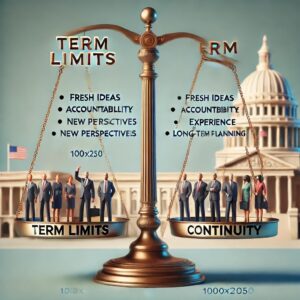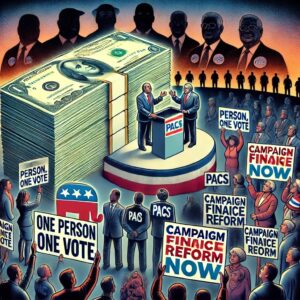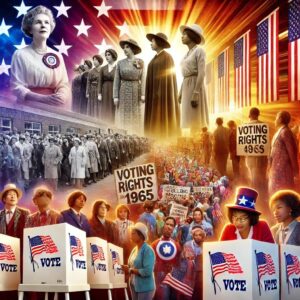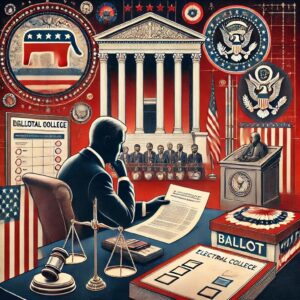
In an election season, one of the most talked-about topics is often the polls. These snapshots of public opinion, collected from samples of voters, attempt to predict election outcomes and gauge support for candidates and issues. Political polling has become a central feature of campaigns and media coverage, shaping public perception, influencing strategies, and even affecting voter turnout. Yet, while polls can provide valuable insights, they’re also complex tools with limitations that can sometimes mislead or create unintended consequences. Let’s explore the profound influence that polling has on modern politics, how predictions sway voters, and why understanding polls is essential to navigating today’s political landscape.
Political polling doesn’t just report public opinion; it also shapes it. Polls can create a bandwagon effect, where people are more likely to support the candidate who appears to be winning. Conversely, they can create an underdog effect, where a candidate’s low numbers motivate their base to rally. For undecided voters, poll results can influence which candidates seem viable, persuading them to lean toward those with momentum.
For example, if a candidate is shown as leading significantly, some voters may feel that casting a ballot for the opposing candidate would be “wasting” their vote. On the other hand, if a race is predicted to be close, voters may feel more compelled to turn out, believing their vote could make a difference. Polls, therefore, play a psychological role in elections, affecting voter morale and shaping the public’s perception of what’s achievable.
Campaigns closely monitor polling data, tailoring their strategies based on the insights these numbers provide. By analyzing demographic support, campaigns can adjust their messaging to address issues most important to specific voter segments. If polls reveal a lack of support among young voters, for instance, a candidate might focus more on topics that resonate with younger audiences, like climate change or student debt relief. Similarly, if polling indicates strong support among certain groups, campaigns might invest additional resources in turnout efforts within those demographics.
Polling also guides decisions on where candidates should campaign. If certain states or regions show tight races, campaigns will focus their resources there, often leading to targeted advertisements, local events, and even increased efforts to reach voters through digital and social media. The insights gleaned from polls can be a game-changer, allowing campaigns to focus on areas with the greatest potential impact.
Polling can either encourage or discourage voter turnout. Some voters, seeing a candidate far ahead, may believe their vote isn’t necessary and stay home, assuming the result is a foregone conclusion. This phenomenon, known as the “discouragement effect,” can potentially lower turnout, especially in races projected to be landslides. Conversely, close polls can boost turnout, motivating voters to participate, believing their vote could be decisive.
However, polling inaccuracies can have real-world consequences. For instance, in the 2016 U.S. presidential election, polling showed a strong lead for one candidate, leading some voters to feel complacent. When results differed from predictions, many questioned polling reliability and methodology. Such cases highlight the complexities of polling and the potential effects on both campaign dynamics and voter participation.
Polls are not foolproof, and their accuracy depends on factors like sample size, sampling method, and question phrasing. Achieving a truly representative sample can be challenging, especially as fewer people participate in traditional polling methods. Factors like phone polls or online surveys can skew results based on who is most likely to respond. Further, with more people having “cut the cord” and moved away from landlines, polling companies must adapt to reach diverse audiences through mobile and online platforms.
Another critical challenge is question design. How questions are worded can influence responses, intentionally or unintentionally. For example, asking about support for a candidate “despite their controversies” versus “because of their policies” might produce dramatically different results. Pollsters also face the difficulty of accounting for undecided voters, who often make up a significant portion of the electorate, especially in close races. These factors, while subtle, can create wide variations in polling results and have profound implications for how polls are interpreted.
With advancements in technology, polling has entered a new era, providing real-time insights that were previously impossible. Social media platforms have become valuable sources of public opinion data, allowing for “sentiment analysis” based on users’ reactions to political events, speeches, or debates. This data provides an instant look at public sentiment and helps campaigns adjust strategies in real time.
The digital age also means that polling data spreads faster than ever, often being reported and re-shared instantly on news sites and social media. This accessibility can lead to “poll fatigue” among the public and even poll-driven anxiety among voters and candidates alike. However, the digital landscape has also given rise to new tools and methodologies, with data scientists constantly innovating to create more reliable models.
Polling, while an invaluable tool in politics, is a double-edged sword. It influences public perception, shapes campaign strategies, and can significantly impact voter turnout. Yet, it’s essential to remember that polls are snapshots, not certainties. Understanding polling methodology, sample diversity, and the potential for bias is crucial for interpreting results thoughtfully.
For voters, approaching polls with a healthy skepticism and understanding their limitations can prevent the undue influence of these numbers on personal decisions. Ultimately, while polls are a powerful element of modern elections, they are only part of the larger political picture. In the end, individual votes—not polling predictions—determine the outcome, making every ballot count, regardless of what the numbers say.






























